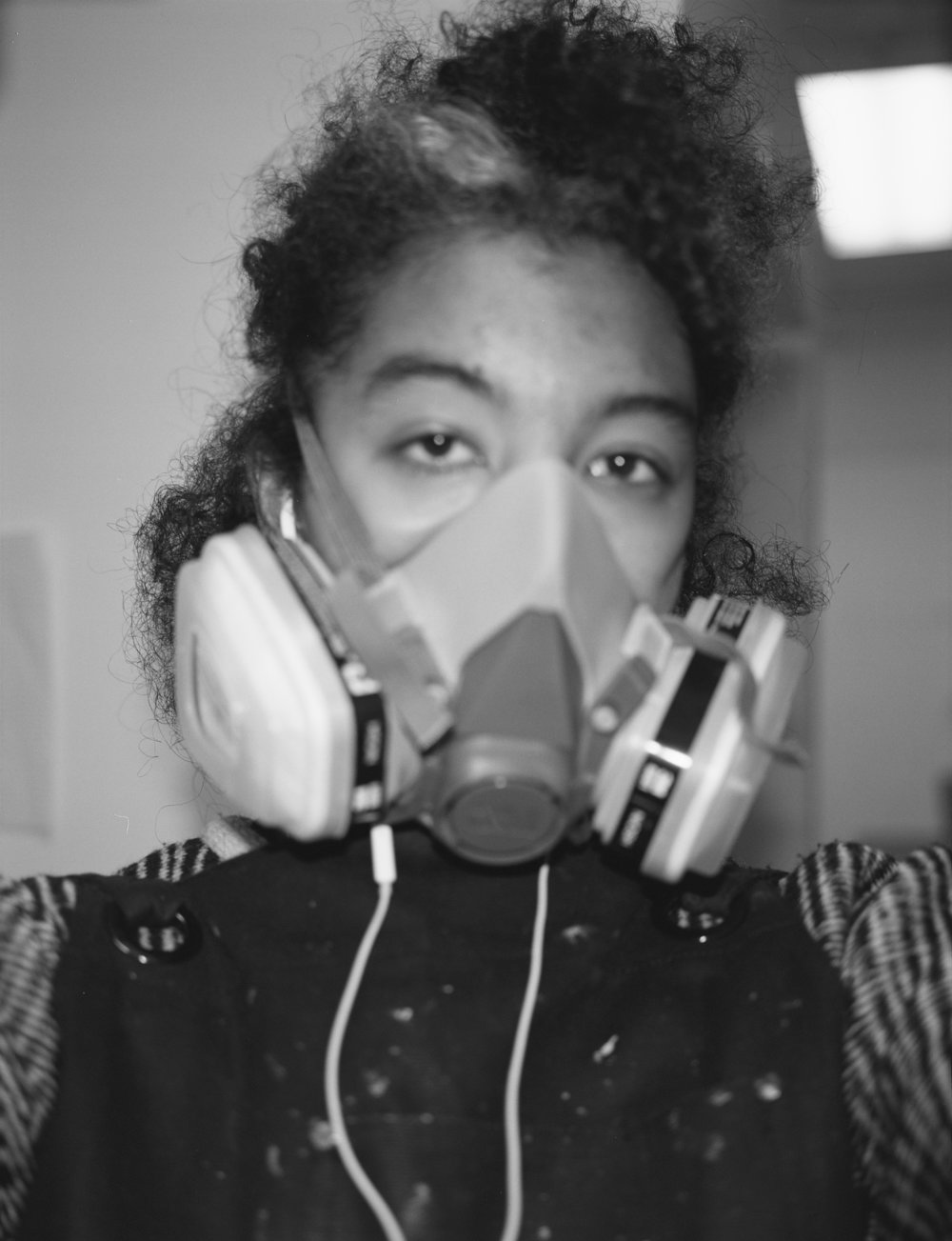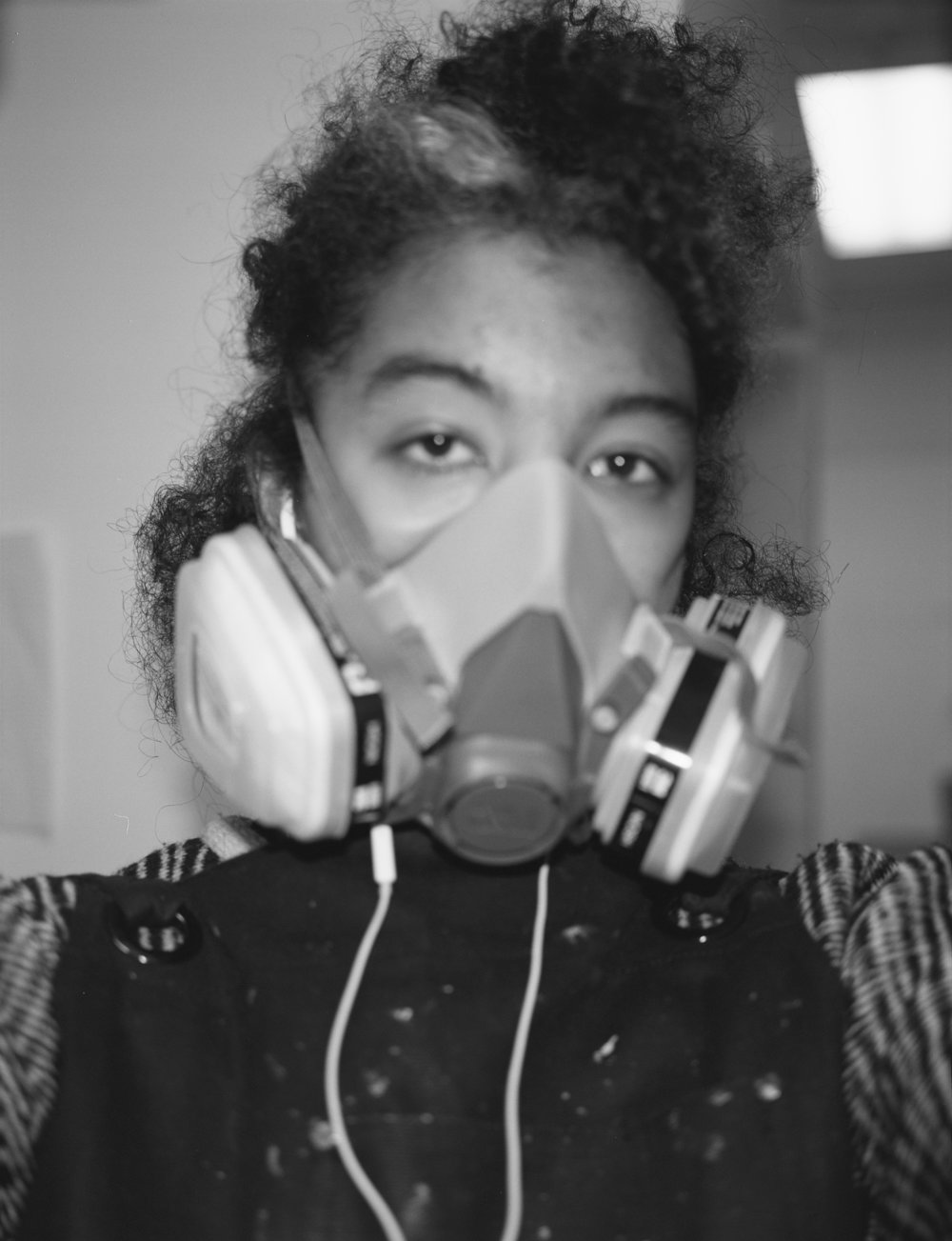In Kara Walker’s studio practice as in her personal life, music is intrinsic. A function of language, a vector to feeling, a submission to the chaos and sublimation of culture and history, Walker’s taste can be described simply as eclectic – the sounds emanating from her studio spanning the globe, forging networks of sentiment and subjectivity across decades. The Soundtrack to her current exhibition, “A Black Hole Is Everything a Star Longs to Be”, at the Schirn appropriately moves through a series of scenes, borrowing a similarly diaristic approach to its curation as the work on view.
From the sweetness and melancholy of Ella Fitzgerald’s 1960 recording of George Gershwin’s “Summertime,” performed live at the no-longer extant Deutschlandhalle arena in Berlin – the same venue constructed to host the 1936 Olympic Games where Black American sprinter Jesse Owens famously competed, to the cause of much consternation from American and German audiences alike.
Both events – Fitzgerald’s iconic album and Owens’ arrival in Germany (and subsequent dismissal by both the American government he sought to represent, and the Nazi regime his presence loaned credibility to) – have become pivotal ligatures between Black America and a broader identification with, or recognition of, the myriad Black experiences present in Germany, additionally revealing layers of our intra-familial connection to both States.
The first three offerings of this Soundtrack are borrowed directly from the artist’s own playlists, incorporating music from Gil Scott-Heron and Grace Jones that Walker first selected for her guest appearance on a radio show I hosted in 2017. Seeing these tracks as foundational to her practice, the selection moves through the mournful sounds of Bristol’s Massive Attack and South London’s Klein, interjected by Ranking Ann, the emcee who got her start in London’s dancehall community in the 1970s.
In dialog with Walker’s large-scale “Fons Americanus”, presented at the Tate Modern in London in late 2019 – a project that took as source material the shared and equally divergent legacies of British colonialism on both sides of the Atlantic – examined too by contemporary British musicians Loraine James and Duval Timothy. Through nauseating repetition, Duval Timothy’s “Slave” speaks both to the enduring violence of the transatlantic slave trade, while taking its contemporary manifestations to task – the disenfranchisement of Black artistic production, the claim to “ownership” by an entity external to the author. Succeeded by “Uchromia” by Slauson Malone, the pairing speaks to an alternative (ir)reconcilability or (im)permeability of language as it relates to subjectivity, continuously explored by Walker within her oeuvre. This effort of communication, for and against its own boundaries, is a key element of Walker’s practice – where contradiction begets fact, which otherwise remains elusive.

Kara Walker, Fons Americanus, Tate Modern, February 2020, Image via WikiCommons
When I was young, an in-progress print hung on the walls of my mother’s studio for a time. It read:
BLUES OF AM-
ISSISIPPI DELTA
VARIETY
“Blues of am” became a prompt in its own right – an abstraction which indirectly supported the entire argument. The last three songs of this Soundtrack take into abstraction inheritances of the Delta Blues – arguably the foundation of all contemporary American music – deferring rather to modern rap of the same Southern coast that shaped Walker’s adolescence and early adulthood, replete with the muggy, mortal, stank – the phantoms and phantasmagoria – of the historical and modern South.

Octavia Bürgerl, Image via www.octaviaburgel.com
